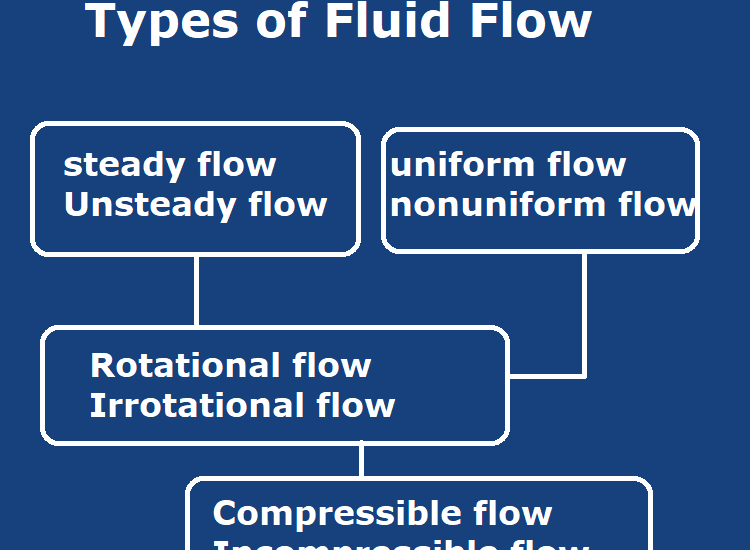There are many types of fluid flow that exist in nature that are important for study. They are explained here.
Uniform Flow and Nonuniform Flow
- Uniform flow is fluid flow in which fluid flow properties are the same at all the points through the flow at a given time.
- Nonuniform flow is flow in which there is no requirement for fluid flow to possess the same properties at all places like pressure, Velocity, and density.
Steady and Unsteady flow
- Steady Flow is a type of flow in which fluid flow properties do not change with time. It should be noted that steady flow can be uniform or non-uniform.
- In Unsteady Flow fluid flow properties like pressure velocity change with time.
Rotational and Irrotational Flow
- Rotational Flow
Flow around the solid boundaries is an example of rotational flow. - Irrotational Flow
In irrotational flow, fluid particles do not rotate about their own axis while flowing along a streamline.
Laminar Flow And Turbulent Flow
- Laminar Flow
Laminar flow is a streamlined flow. This type of flow can be seen in viscous fluid flow. Also, a flow with higher velocity tends to exhibit laminar flow. These type of fluid flows have their particles a smooth or regular path.
A flow having Raynolds number up to 2300 is called laminar flow. The best example of laminar flow is smoke from an incense stick. However, after up to some height flow becomes turbulent. - Turbulent Flow
These types of flows are not streamlined flows. Flow at lower viscosity shows this type of flow characteristic. We can see eddies and swirls in a turbulent flow. A turbulent flow is characterized by a Reynolds number greater than 4000.
Compressible Flow and Incompressible Flow
- Compressible Flow
In compressible flow, the fluid’s density changes significantly as it flows, often due to changes in pressure and temperature. Gases like air are typically considered compressible. - Incompressible Fluid Flow
In incompressible flow, the fluid’s density remains nearly constant as it flows. Liquids like water are typically considered incompressible for most practical engineering applications.
Read Also- Criteria For Selection Of The Repair Material
Ready Mix Concrete-RMC And Its Advantages And Disadvantages
What Is RCC? Properties And Uses Of RCC
Self Compacting Concrete – Properties and Application
Lightweight Concrete – Making and Applications Explained in Detail
